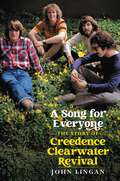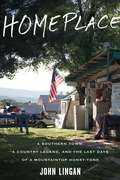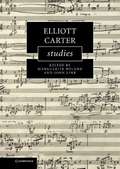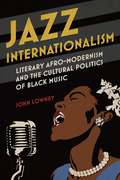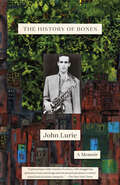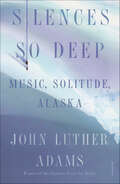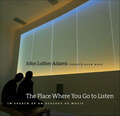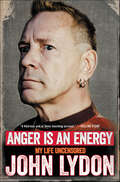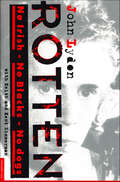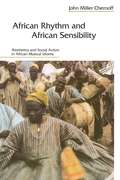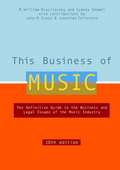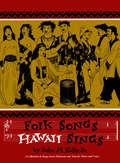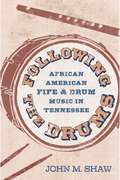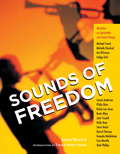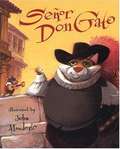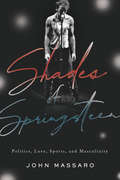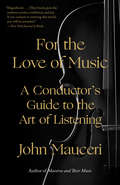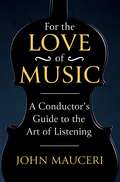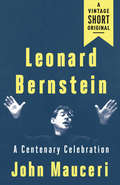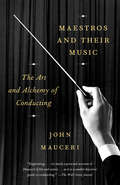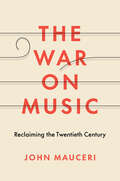- Table View
- List View
A Song For Everyone: The Story of Creedence Clearwater Revival
by John LinganThe definitive biography of Creedence Clearwater Revival, exploring the band's legendary rise to fame and how their music embodied the cultural landscape of the late '60s and early '70sFrom 1969 to 1971, as the United States convulsed with political upheaval and transformative social movements, no band was bigger than Creedence Clearwater Revival. They managed a two-year barrage of top-10 singles and LPs that doubled as an ubiquitous soundtrack to one of the most volatile periods in modern American history, and they remain a staple of classic rock radio and films about the era. Yet despite their enduring popularity, no book has ever sought to understand Creedence in conversation with their time. A Song for Everyone finally tells that story: the thirteen-year saga of an unassuming suburban quartet's journey through the wilds of 1960s pop, and their slow accrual of a sound and ethos that were almost mystically aligned with the concerns of decade's end. Starting in middle school, these Californian friends and brothers cut a working-class path through the most expansive decade in American music, playing R&B, country, and rock 'n' roll under a variety of names as each of those genres expanded and evolved. When they finally synthesized those styles under a new name in 1968, Creedence Clearwater Revival became instantly epochal, then fell apart under the weight of personal grievances that dated back to adolescence. As musicians and as men, they embodied the contradictions and difficulties of their time, and those dimensions of their career have never been explored until now.Drawing on wide-ranging research into the social and musical developments of 1959-1972, extensive original interviews with surviving Creedence members and associates, and unpublished memoirs from people who knew the group closely, A Song for Everyone is the definitive account of a legendary and still-beloved American band. At the same time, it is also a cultural history of those same years—from Elvis to Altamont, Eisenhower to Watergate—seen through the eyes of four men who encapsulated them in song for all time, told by one of the rising figures in contemporary music writing.
Homeplace: A Southern Town, a Country Legend, and the Last Days of a Mountaintop Honky-Tonk
by John LinganAn intimate account of country music, social change, and a vanishing way of life as a Shenandoah town collides with the twenty-first century Winchester, Virginia is an emblematic American town. When John Lingan first traveled there, it was to seek out Jim McCoy: local honky-tonk owner and the DJ who first gave airtime to a brassy-voiced singer known as Patsy Cline, setting her on a course for fame that outlasted her tragically short life. What Lingan found was a town in the midst of an identity crisis. As the U.S. economy and American culture have transformed in recent decades, the ground under centuries-old social codes has shifted, throwing old folkways into chaos. Homeplace teases apart the tangle of class, race, and family origin that still defines the town, and illuminates questions that now dominate our national conversation—about how we move into the future without pretending our past doesn't exist, about what we salvage and what we leave behind. Lingan writes in &“penetrating, soulful ways about the intersection between place and personality, individual and collective, spirit and song.&”* * Leslie Jamison, author of The Empathy Exams
Elliott Carter Studies
by Marguerite Boland John LinkOver the course of an astonishingly long career, Elliott Carter has engaged with many musical developments of the twentieth and now twenty-first centuries – from his early neo-classic music of the interwar period, to his modernist works of conflict and opposition in the 1960s and 1970s, to the reshaping of a modernist aesthetic in his latest compositions. Elliott Carter Studies throws new light on these many facets of Carter's extensive musical oeuvre. This collection of essays presents historic, philosophic, philological and theoretical points of departure for in-depth investigations of individual compositions, stylistic periods in Carter's output and his contributions to a variety of genres, including vocal music, the string quartet and the concerto. The first multi-authored book to appear on Carter's music, it brings together new research from a distinguished team of leading international Carter scholars, providing the reader with a wide range of perspectives on an extraordinary musical life.
Jazz Internationalism: Literary Afro-Modernism and the Cultural Politics of Black Music
by John LowneyJazz Internationalism offers a bold reconsideration of jazz's influence in Afro-modernist literature. Ranging from the New Negro Renaissance through the social movements of the 1960s, John Lowney articulates nothing less than a new history of Afro-modernist jazz writing. Jazz added immeasurably to the vocabulary for discussing radical internationalism and black modernism in leftist African American literature. Lowney examines how Claude McKay, Ann Petry, Langston Hughes, and many other writers employed jazz as both a critical social discourse and mode of artistic expression to explore the possibilities ”and challenges ”of black internationalism. The result is an expansive understanding of jazz writing sure to spur new debates.
The History of Bones: A Memoir
by John LurieThe quintessential depiction of 1980s New York and the downtown scene from the artist, actor, musician, and composer John Lurie&“Ferocious and wise, funny and tragic, raging and forgiving, and I loved every page.&”—Nick Flynn, author of Another Bullshit Night in Suck CityIn the tornado that was downtown New York in the 1980s, John Lurie stood at the vortex. After founding the band The Lounge Lizards with his brother, Evan, in 1979, Lurie quickly became a centrifugal figure in the world of outsider artists, cutting-edge filmmakers, and cultural rebels. Now Lurie vibrantly brings to life the whole wash of 1980s New York as he developed his artistic soul over the course of the decade and came into orbit with all the prominent artists of that time and place, including Andy Warhol, Debbie Harry, Boris Policeband, and, especially, Jean-Michel Basquiat, the enigmatic prodigy who spent a year sleeping on the floor of Lurie&’s East Third Street apartment. It may feel like Disney World now, but in The History of Bones, the East Village, through Lurie&’s clear-eyed reminiscence, comes to teeming, gritty life. The book is full of grime and frank humor—Lurie holds nothing back in this journey to one of the most significant moments in our cultural history, one whose reverberations are still strongly felt today. History may repeat itself, but the way downtown New York happened in the 1980s will never happen again. Luckily, through this beautiful memoir, we all have a front-row seat.
Silences So Deep: Music, Solitude, Alaska
by John Luther Adams"[An] illuminating memoir." —Corinna da Fonseca-Wollheim, The New York TimesThe story of a composer's life in the Alaskan wilderness and a meditation on making art in a landscape acutely threatened by climate changeIn the summer of 1975, the composer John Luther Adams, then a twenty-two-year-old graduate of CalArts, boarded a flight to Alaska. So began a journey into the mountains, forests, and tundra of the far north—and across distinctive mental and aural terrain—that would last for the next forty years. Silences So Deep is Adams’s account of these formative decades—and of what it’s like to live alone in the frozen woods, composing music by day and spending one’s evenings with a raucous crew of poets, philosophers, and fishermen. From adolescent loves—Edgard Varèse and Frank Zappa—to mature preoccupations with the natural world that inform such works as The Wind in High Places, Adams details the influences that have allowed him to emerge as one of the most celebrated and recognizable composers of our time. Silences So Deep is also a memoir of solitude enriched by friendships with the likes of the conductor Gordon Wright and the poet John Haines, both of whom had a singular impact on Adams’s life. Whether describing the travails of environmental activism in the midst of an oil boom or midwinter conversations in a communal sauna, Adams writes with a voice both playful and meditative, one that evokes the particular beauty of the Alaskan landscape and the people who call it home.Ultimately, this book is also the story of Adams’s difficult decision to leave a rapidly warming Alaska and to strike out for new topographies and sources of inspiration. In its attentiveness to the challenges of life in the wilderness, to the demands of making art in an age of climate crisis, and to the pleasures of intellectual fellowship, Silences So Deep is a singularly rich account of a creative life.
The Place Where You Go to Listen: In Search of an Ecology of Music
by John Luther AdamsDid Alaska create the music of John Luther Adams, or did the music create his Alaska? For the past thirty years, the vastness of Alaska has swept through the distant reaches of the composer's imagination and every corner of his compositions. In this new book Adams proposes an ideal of musical ecology, the philosophical foundation on which his largest, most complex musical work is based. This installation, also called The Place Where You Go to Listen, is a sound and light environment that gives voice to the cycles of sunlight and darkness, the phases of the moon, the seismic rhythms of the earth, and the dance of the aurora borealis. Adams describes this work as "a place for hearing the unheard music of the world around us." The book includes two seminal essays, the composer's journal telling the story of the day-to-day emergence of The Place, as well as musical notations, graphs and illustrations of geophysical phenomena.
Anger Is an Energy: My Life Uncensored
by John LydonFrom the legendary frontman of the Sex Pistols, comes the complete, unvarnished story of his life in his own words.John Lydon is an icon—one of the most recognizable and influential cultural figures of the last forty years. As Johnny Rotten, he was the lead singer of the Sex Pistols-the world’s most notorious band. The Pistols shot to fame in the mid-1970s with songs such as “Anarchy in the UK” and “God Save the Queen.” So incendiary was their impact at the time that in their native England, the Houses of Parliament questioned whether they violated the Traitors and Treasons Act, a crime that carries the death penalty to this day. The Pistols would inspire the formation of numerous other groundbreaking groups and Lydon would become the unlikely champion of a generation clamoring for change.Following on the heels of the Pistols, Lydon formed Public Image Ltd (PiL), expressing an equally urgent impulse in his character: the constant need to reinvent himself, to keep moving. From their beginnings in 1978 PiL set the groundbreaking template for a band that continues to challenge and thrive to this day, while also recording one of the eighties most powerful anthems, “Rise.” Lydon also found time for making innovative dance records with the likes of Afrika Bambaataa and Leftfield. By the nineties he’d broadened his reach into other media while always maintaining his trademark invective and wit, most memorably hosting Rotten TV on VH1.John Lydon remains a captivating and dynamic figure to this day—both as a musician, and, thanks to his outspoken, controversial, and from-the-hip opinions, as a cultural commentator. In Anger is an Energy, he looks back on a life full of incident, from his beginnings as a sickly child of immigrant Irish parents growing up in post-war London to his present status as a vibrant, alternative hero.The book includes 70 black-and-white and color photos, many which are rare or never-before-seen.
Rotten: No Irish, No Blacks, No Dogs
by Keith Zimmerman Kent Zimmerman John Lydon"I have no time for lies and fantasy, and neither should you. Enjoy or die..." --John LydonPunk has been romanticized and embalmed in various media. An English class revolt that became a worldwide fashion statement, punk's idols were the Sex Pistols, and its sneering hero was Johnny Rotten.Seventeen years later, John Lydon looks back at himself, the Sex Pistols, and the "no future" disaffection of the time. Much more than just a music book, Rotten is an oral history of punk: angry, witty, honest, poignant, crackling with energy. Malcolm McLaren, Sid Vicious, Chrissie Hynde, Billy Idol, London and England in the late 1970s, the Pistols' creation and collapse...all are here, in perhaps the best book ever written about music and youth culture, by one of its most notorious figures.
African Rhythm and African Sensibility: Aesthetics and Social Action in African Musical Idioms
by John M. Chernoff"We have in this book a Rosetta stone for mediating, or translating, African musical behavior and aesthetics." --Andrew Tracey, African Music. "John Miller Chernoff, who spent 10 years studying African drumming, has a flair for descriptive writing, and his first-person narratives should be easily understood by any reader, while ringing unmistakably true for the reader who has also been to West Africa." --Roderick Knight, Washington Post Book World. "Ethnomusicologists must be proud that their discipline has produced a book that will, beyond doubt, rank as a classic of African studies." --Peter Fryer,Research in Literatures. "A marvelous book. ... Not many scholars will ever be able to achieve the kind of synthesis of 'doing' and 'writing about' their subject matter that Chernoff has achieved, but he has given us an excellent illustration of what is possible." --Chet Creider, Culture. "Chernoff develops a brilliant and penetrating musicological essay that is, at the same time, an intensely personal and even touching account of musical and cultural discovery that anyone with an interest in Africa can and should read. ... No other writing comes close to approaching Chernoff's ability to convey a feeling of how African music 'works'." --James Koetting, Africana Journal. "Four stars. One of the few books I know of that talks of the political, social, and spiritual meanings of music. I was moved. It was so nice I read it twice." --David Byrne of "Talking Heads". The companion cassette tape has 44 examples of the music discussed in the book. It consists of field recordings illustrating cross-rhythms, multiple meters, call and response forms, etc.
Schubert's Beethoven Project
by John M. GingerichWhy couldn't Schubert get his 'great' C-Major Symphony performed? Why was he the first composer to consistently write four movements for his piano sonatas? Since neither Schubert's nor Beethoven's piano sonatas were ever performed in public, who did hear them? Addressing these questions and many others, John M. Gingerich provides a new understanding of Schubert's career and his relationship to Beethoven. Placing the genres of string quartet, symphony, and piano sonata within the cultural context of the 1820s, the book examines how Schubert was building on Beethoven's legacy. Gingerich brings new understandings of how Schubert tried to shape his career to bear on new hermeneutic readings of the works from 1824 to 1828 that share musical and extra-musical pre-occupations, centering on the 'Death and the Maiden' Quartet and the Cello Quintet, as well as on analyses of the A-minor Quartet, the Octet, and of the 'great' C-Major Symphony.
This Business of Music: The Definitive Guide to the Music Industry
by John M. Gross M. William Krasilovsky Sidney Shemel Jonathan FeinsteinThe bible of the music industry! Now in its tenth edition, This Business of Music has been revised and completely updated to reflect the latest changes in the ever-evolving music business. Every chapter has been revised. An entirely new chapter has been added, asking and answering the question "Are there borders in cyberspace?" The answer is yes, and the book clearly and concisely explains what they are and how to maintain them. Commentary on recent legislation, a reader-friendly summary of the laws on copyright duration, and much more insightful analysis--plus fully updated lists of music organizations and important websites--make This Business of Music indispensable for musicians, agents, managers, marketers, music publishers and groups, colleges and universities, and everyone who wants to make music and make money.
Folk Songs Hawaii Sings
by John M. KellyFolk Songs Hawaii Sings is a sparkling compilation of melodies from the islands of Polynesia together with a variety of folk songs that countless Oriental people have brought with them to their new home in the Hawaiian Islands. In one sense it is a musical picture of the renowned harmonious blend of people who reside in Hawaii today; in another, it is a colorful record of ties with the Eastern world and ancestral heritage in line with the same American tradition that saw songs of the soil and the sea brought to the United States from Europe in an earlier age.All the songs and more, whether from Hawaii or Samoa, China or Japan, the Philippines, Okinawa, or Mongolia, are melodic bearers of traditions and aspirations, or vehicles of simple pleasures that form the background of the people who today share the hospitable sun of the Hawaiian Islands with their Caucasian neighbors. These melodies and rhythms have found their way into the many festivals and musical presentations that are so much a way of life in the welcome addition to the American Union.
Folk Songs Hawaii Sings
by John M. KellyFolk Songs Hawaii Sings is a sparkling compilation of melodies from the islands of Polynesia together with a variety of folk songs that countless Asian people have brought with them to their new home in the Hawaiian Islands.In one sense it is a musical picture of the renowned harmonious blend of people who reside in Hawaii today; in another, it is a colorful record of ties with the Eastern world and ancestral heritage in line with the same American tradition that saw songs of the soil and the sea brought to the United States from Europe in an earlier age.All the songs and more, whether from Hawaii or Samoa, China or Japan, the Philippines, Okinawa, or Mongolia, are melodic bearers of traditions and aspirations, or vehicles of simple pleasures that form the background of the people who today share the hospitable sun of the Hawaiian Islands with their Caucasian neighbors. These melodies and rhythms have found their way into the many festivals and musical presentations that are so much a way of life in the welcome addition to the American Union.
Following the Drums: African American Fife and Drum Music in Tennessee (American Made Music Series)
by John M. ShawFollowing the Drums: African American Fife and Drum Music in Tennessee is an epic history of a little-known African American instrumental music form. John M. Shaw follows the music from its roots in West Africa and early American militia drumming to its prominence in African American communities during the time of Reconstruction, both as a rallying tool for political militancy and a community music for funerals, picnics, parades, and dances. Carefully documenting the music's early uses for commercial advertising and sports promotion, Shaw follows the strands of the music through the nadir of African American history during post-Reconstruction up to the form's rediscovery by musicologists and music researchers during the blues and folk revival of the late 1960s and early 1970s. Although these researchers documented the music, and there were a handful of public performances of the music at festivals, the story has a sad conclusion. Fife and drum music ultimately died out in Tennessee during the early 1980s.Newspaper articles from the period and interviews with music researchers and participants reawaken this lost expression, and specific band leaders receive the spotlight they so long deserved. Following the Drums is a journey through African American history and Tennessee history, with a fascinating form of music powering the story.
Schumann’s Music and E. T. A. Hoffmann’s Fiction
by John MacauslanFour of Schumann's great masterpieces of the 1830s - Carnaval, Fantasiestücke, Kreisleriana and Nachtstücke - are connected to the fiction of E. T. A. Hoffmann. In this book, John MacAuslan traces Schumann's stylistic shifts during this period to offer insights into the expressive musical patterns that give shape, energy and individuality to each work. MacAuslan also relates the works to Schumann's reception of Bach, Beethoven, Novalis and Jean Paul, and focuses on primary sources in his wide-ranging discussion of the broader intellectual and aesthetic contexts. Uncovering lines of influence from Schumann's reading to his writings, and reflecting on how the aesthetic concepts involved might be used today, this book transforms the way Schumann's music and its literary connections can be understood and will be essential reading for musicologists, performers and listeners with an interest in Schumann, early nineteenth-century music and German Romantic culture.
Sounds of Freedom
by Thich Nhat Hanh John MalkinIn Sounds of Freedom, sixteen extraordinary musicians share their intimate thoughts on art, spirituality, and social change. These intimate interviews offer a rare glimpse into the personal motivations of these public artists.Includes interviews with: Michael Franti, Michelle Shocked, Ani DiFranco, Indigo Girls, Laurie Anderson, Philip Glass, Rickie Lee Jones, Boots Riley, John Trudell, Holly Near, Steve Reich, Darryl Cherney, Goapele Mohlabane, Tom Morello, Utah Philips.
Sounds of Freedom: Musicians on Spirituality and Social Change
by John MalkinSounds of Freedom brings together some of the contruy's best-known musicians to share their thoughts on spirituality and social change. Philip Glass, the Indigo girls, Michael Franti, Michelle Shocked, Laurie Anderson and others reveal their inspiration and their commitments to peace and justice. Featuring a foreword by Vietnamese Zen Master Thcih Nhat Hanh and a bonus CD of songs by the artists in the book, offers rare insight into the hearts of these musicians.
Señor Don Gato: A Traditional Song
by John MandersWhen he climbs on a roof to read a love letter, a cat has an unfortunate fall with unexpected consequences.
Shades of Springsteen: Politics, Love, Sports, and Masculinity
by John MassaroOne of the secrets to Bruce Springsteen’s enduring popularity over the past fifty years is the way fans feel a deep personal connection to his work. Yet even as the connection often stays grounded in details from his New Jersey upbringing, Springsteen’s music references a rich array of personalities from John Steinbeck to Amadou Diallo and beyond, inspiring fans to seek out and connect with a whole world’s worth of art, literature, and life stories. In this unique blend of memoir and musical analysis, John Massaro reflects on his experiences as a lifelong fan of The Boss and one of the first professors to design a college course on Springsteen’s work. Focusing on five of the Jersey rocker’s main themes—love, masculinity, sports, politics, and the power of music—he shows how they are represented in Springsteen’s lyrics and shares stories from his own life that powerfully resonate with those lyrics. Meanwhile, paying tribute to Springsteen’s inclusive vision, he draws connections among figures as seemingly disparate as James Joyce, Ta-Nehisi Coates, Thomas Aquinas, Bobby Darin, and Lin-Manuel Miranda. Shades of Springsteen offers a deeply personal take on the musical and cultural legacies of an American icon.
For the Love of Music: A Conductor's Guide to the Art of Listening
by John MauceriWith a lifetime of experience, profound knowledge and understanding, and heartwarming appreciation, an internationally celebrated conductor and teacher answers the questions: Why should I listen to classical music? How can I get the most from the listening experience?A protégé of Leonard Bernstein--his colleague for eighteen years--and an eminent conductor who has toured and recorded all over the world, John Mauceri helps us to reap the joys and pleasures classical music has to offer. Briefly, we learn the way a musical tradition born in ancient Greece, embraced by the Roman Empire, and subsequently nurtured by influences from across the globe, gave shape to the classical music that came to be embraced by cultures from Japan to Bolivia. Then Mauceri examines the music itself, helping us understand what it is we hear when we listen to classical music: how, by a kind of sonic metaphor, it expresses the deepest recesses of human feeling and emotion; how each piece bears the traces of its history; how the concert experience--a unique one each and every time--allows us to discover music anew. Unpretentious, graceful, instructive, this is a book for the aficionado, the novice, and anyone looking to have the love of music fired within them.
For the Love of Music: A Conductor's Guide to the Art of Listening
by John MauceriWith a lifetime of experience, profound knowledge and understanding, and heartwarming appreciation, an internationally celebrated conductor and teacher answers the questions: Why should I listen to classical music? How can I get the most from the listening experience?A protegee of Leonard Bernstein - his colleague for eighteen years - and an eminent conductor who has toured and recorded all over the world, John Mauceri helps us to reap the joy and pleasures classical music has to offer. Briefly, we learn the way a musical tradition born in ancient Greece, embraced by Roman Empire, and subsequently nurtured by influences from across the globe gave shape to the classical music that came to be embraced by cultures from Japan to Bolivia. Then Mauceri examines the music itself, helping us understand what it is we hear when we listen to classical music: how, by a kind of sonic metaphor, it expresses the deepest recesses of human feeling and emotion; how each piece bears the traces of its history; how the concert experience - a unique one each and every time - allows us to discover music anew. Unpretentious, graceful, instructive, this is a book for the aficionado, the novice, and anyone looking to have the love of music fired within them.
Leonard Bernstein: A Centenary Celebration (A Vintage Short)
by John MauceriA beautiful look into the life of one of our greatest and most famous musicians, Leonard Bernstein, from acclaimed conductor and musical director John Mauceri. A Vintage Shorts Original. An ebook short.
Maestros and Their Music: The Art And Alchemy Of Conducting
by John MauceriAn exuberant, uniquely accessible, beautifully illustrated look inside the enigmatic art and craft of conducting, from a celebrated conductor whose international career has spanned half a century. John Mauceri brings a lifetime of experience to bear in an unprecedented, hugely informative, consistently entertaining exploration of his profession, rich with anecdotes from decades of working alongside the greatest names of the music world. With candor and humor, Mauceri makes clear that conducting is itself a composition: of legacy and tradition, techniques handed down from master to apprentice--and more than a trace of ineffable magic. He reveals how conductors approach a piece of music (a calculated combination of personal interpretation, imagination, and insight into the composer's intent); what it takes to communicate solely through gesture, with sometimes hundreds of performers at once; and the occasionally glamorous, often challenging life of the itinerant maestro. Mauceri, who worked closely with Leonard Bernstein for eighteen years, studied with Leopold Stokowski, and was on the faculty of Yale University for fifteen years, is the perfect guide to the allure and theater, passion and drudgery, rivalries and relationships of the conducting life.
The War on Music: Reclaiming the Twentieth Century
by John MauceriA prominent conductor explores how aesthetic criteria masked the political goals of countries during the three great wars of the past century This book offers a major reassessment of classical music in the twentieth century. John Mauceri argues that the history of music during this span was shaped by three major wars of that century: World War I, World War II, and the Cold War. Probing why so few works have been added to the canon since 1930, Mauceri examines the trajectories of great composers who, following World War I, created voices that were unique and versatile, but superficially simpler. He contends that the fate of composers during World War II is inextricably linked to the political goals of their respective governments, resulting in the silencing of experimental music in Germany, Italy, and Russia; the exodus of composers to America; and the sudden return of experimental music—what he calls “the institutional avant-garde”—as the lingua franca of classical music in the West during the Cold War.
